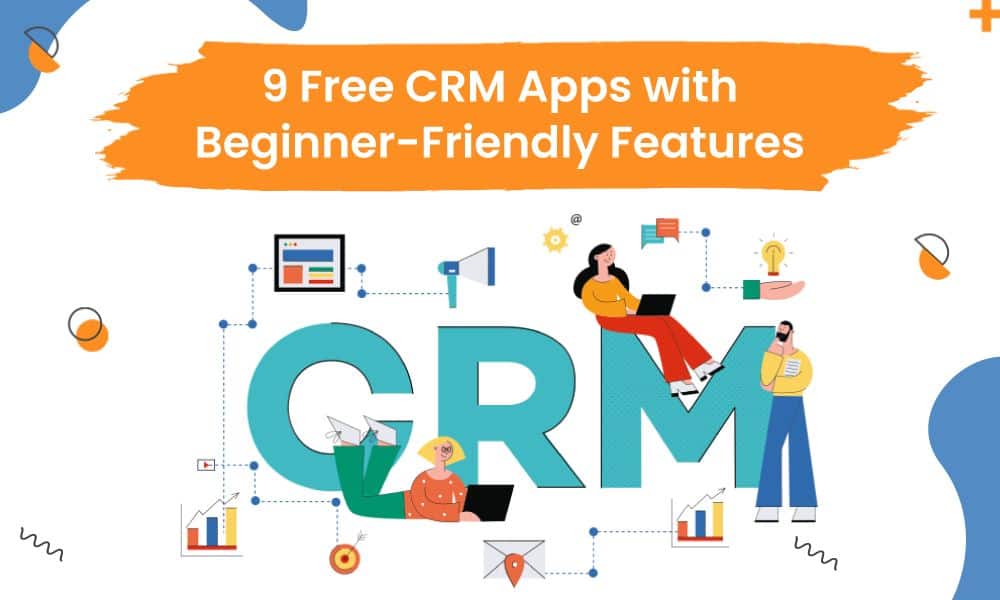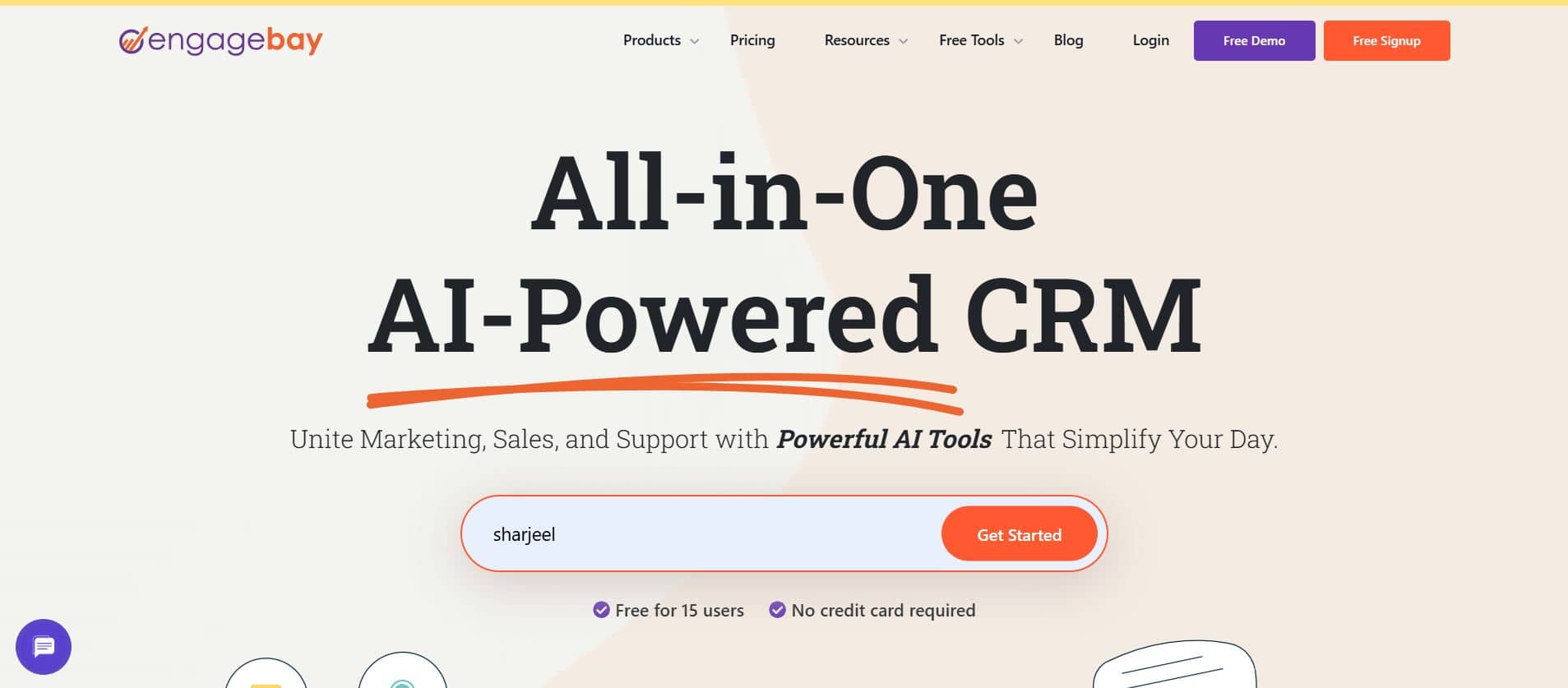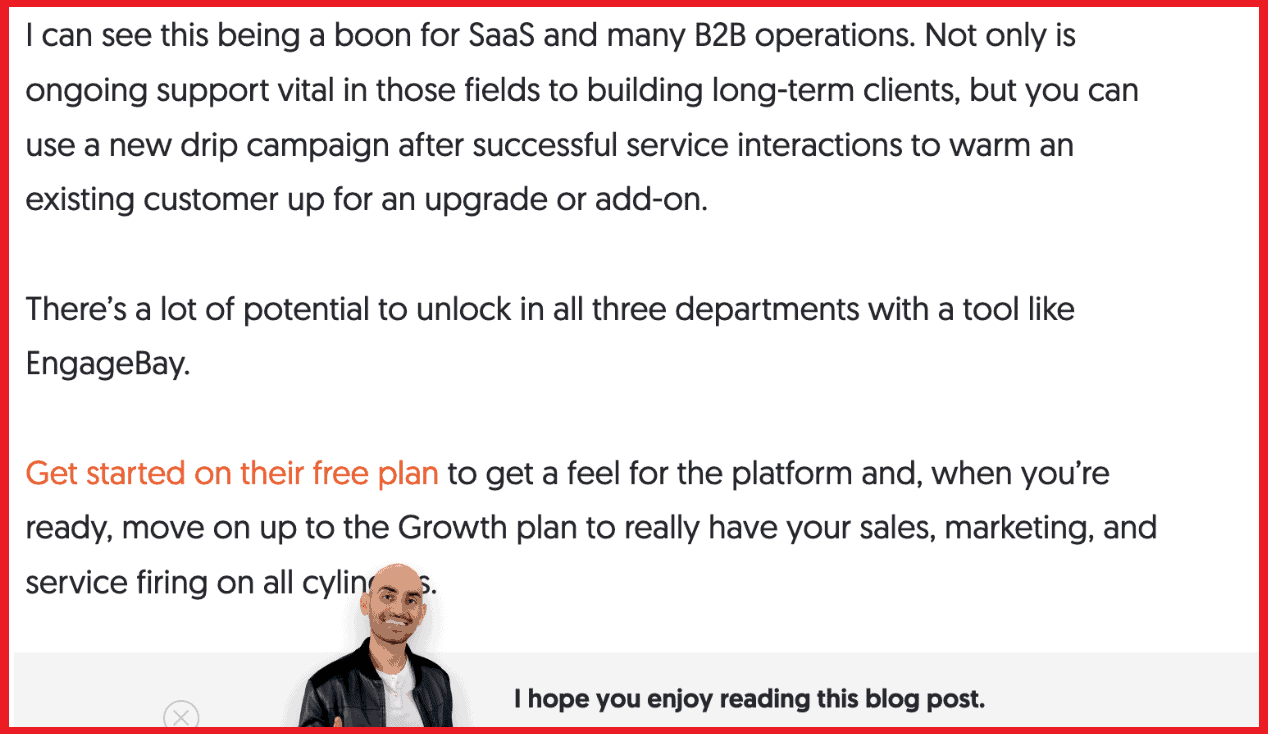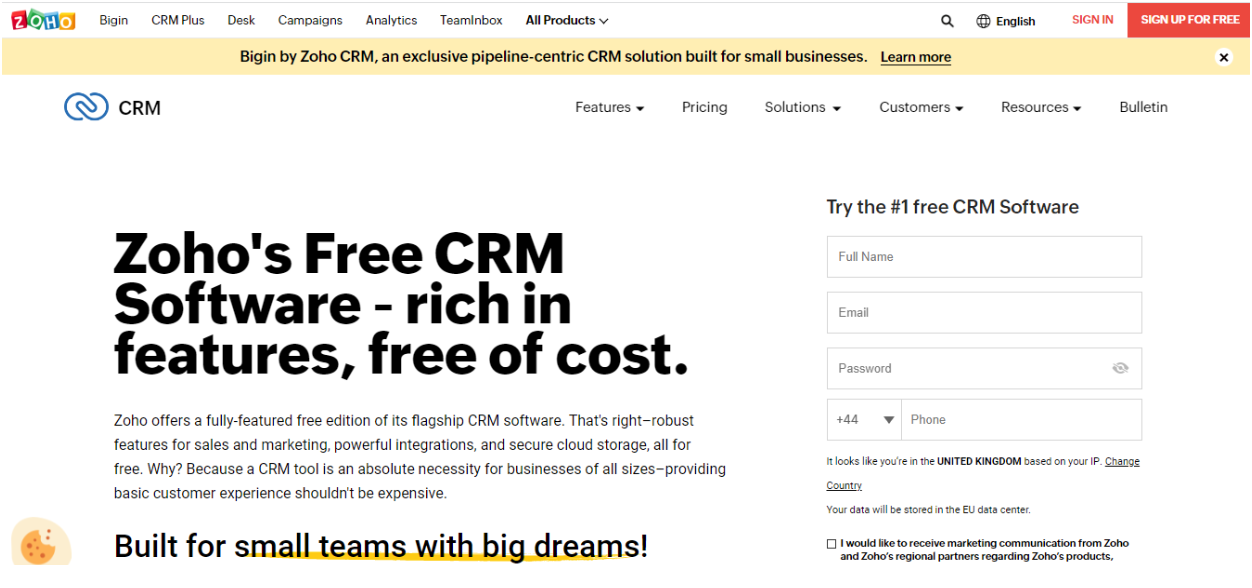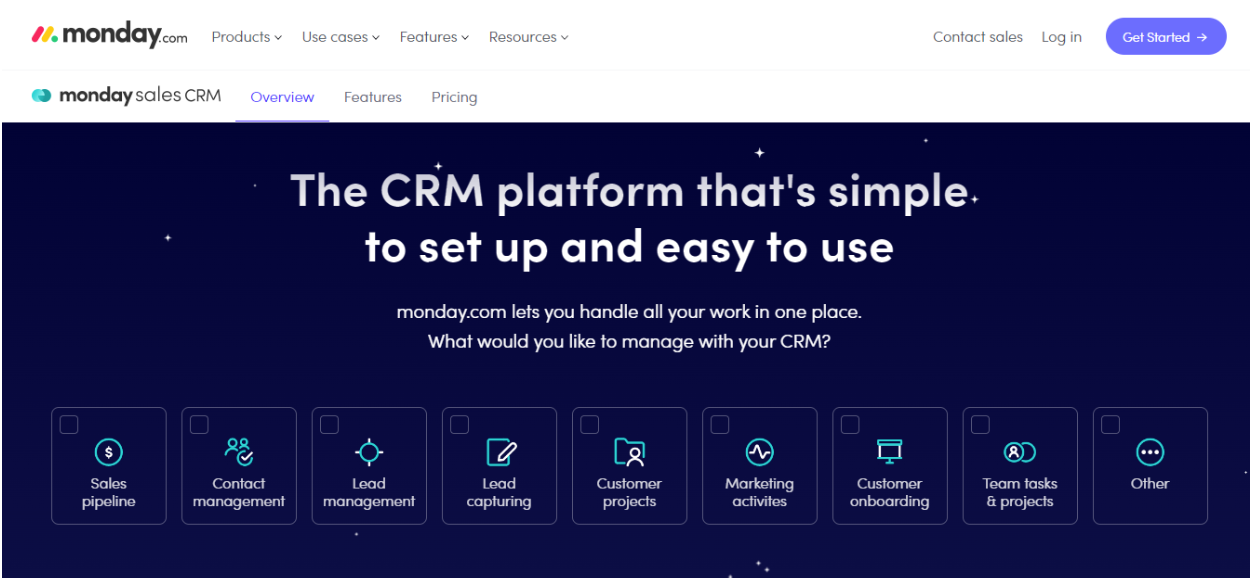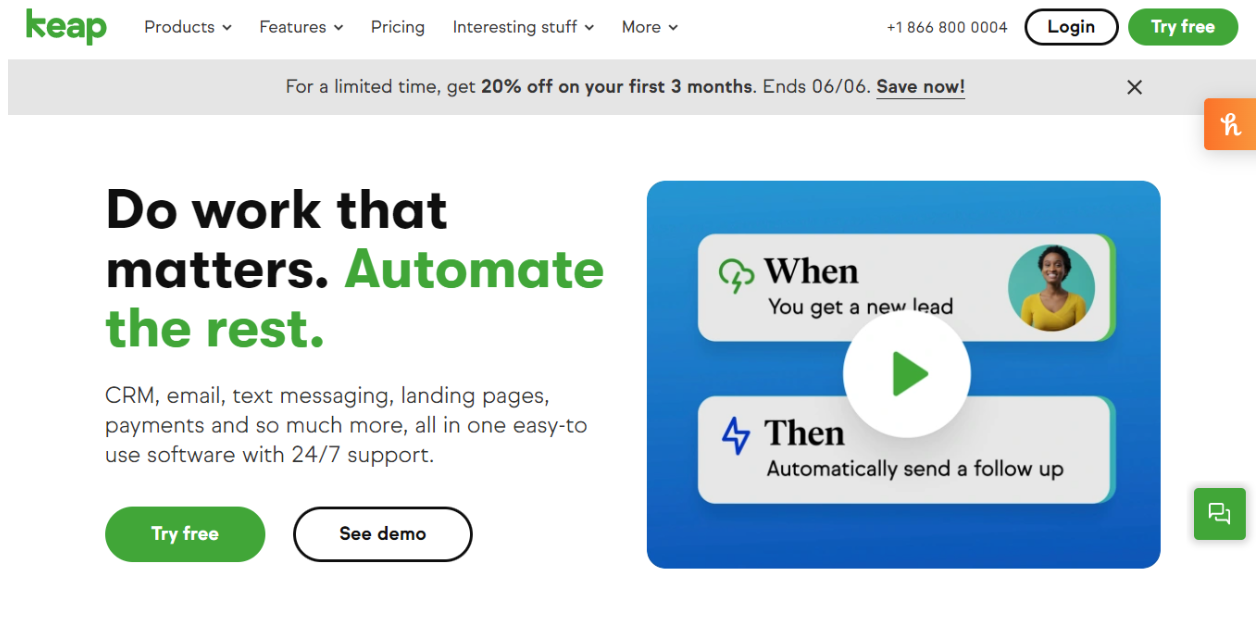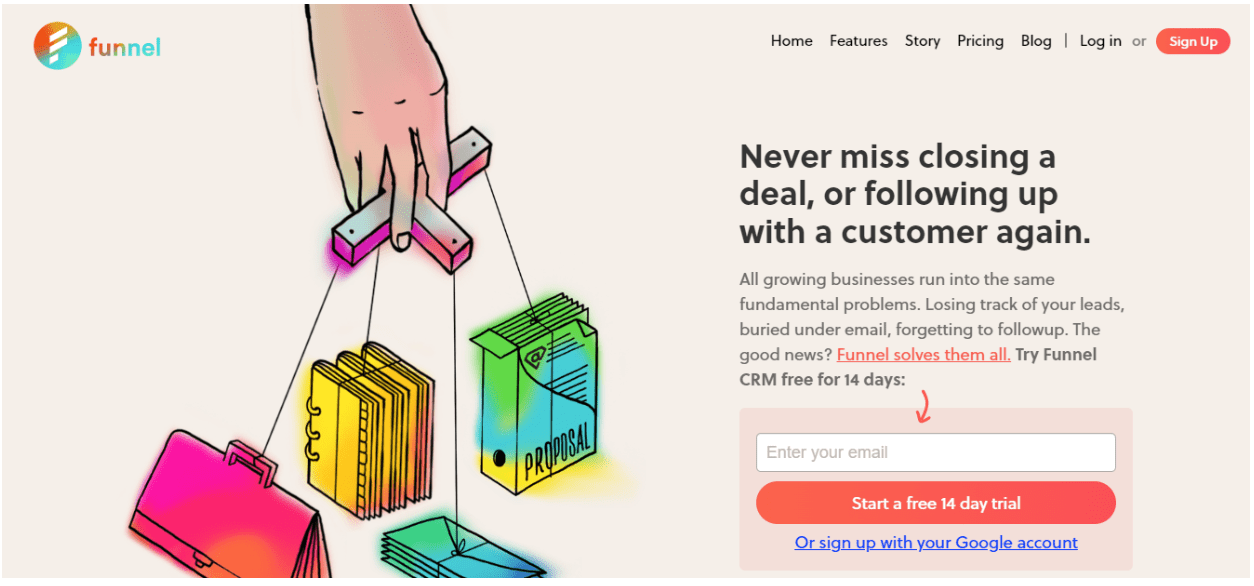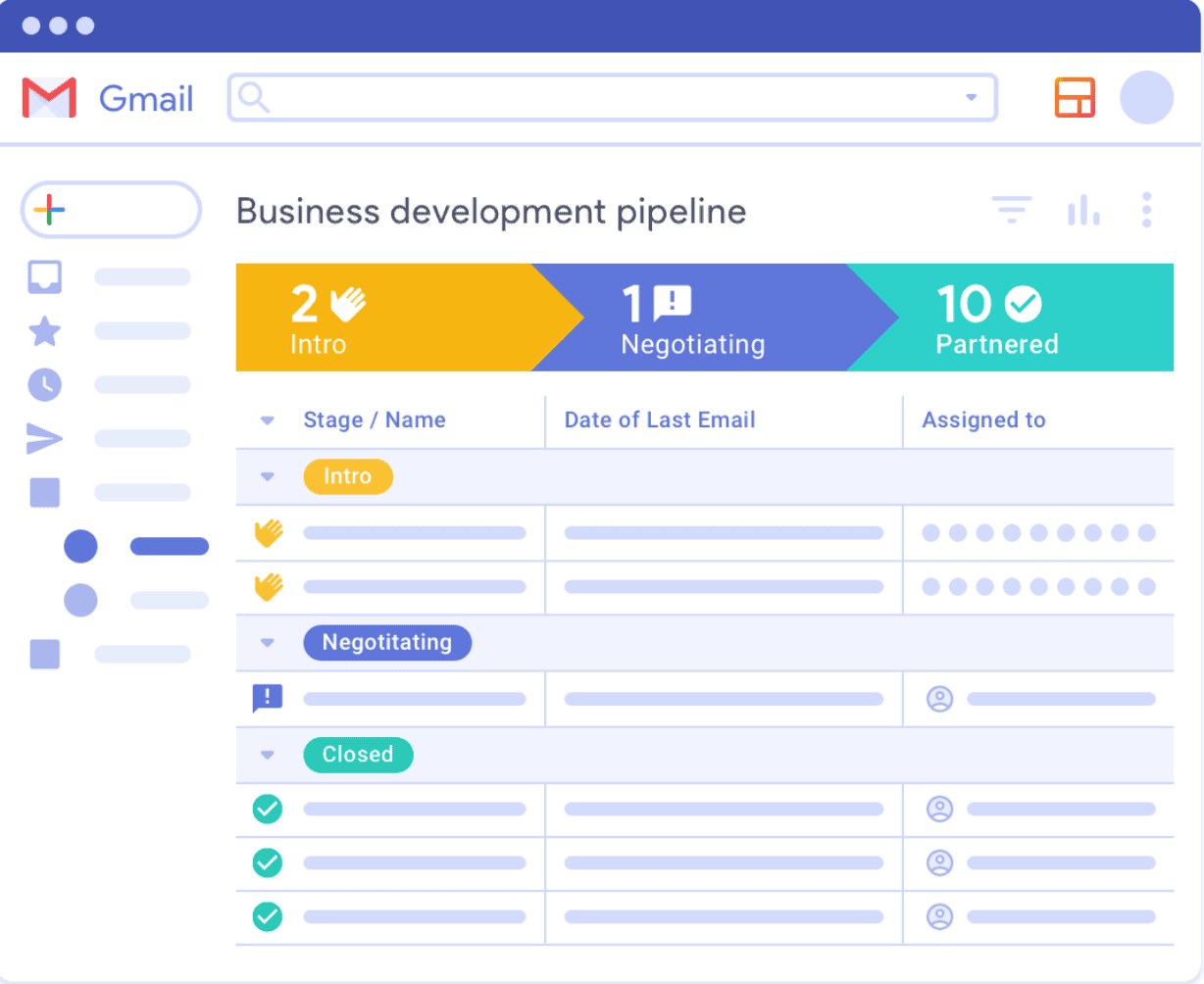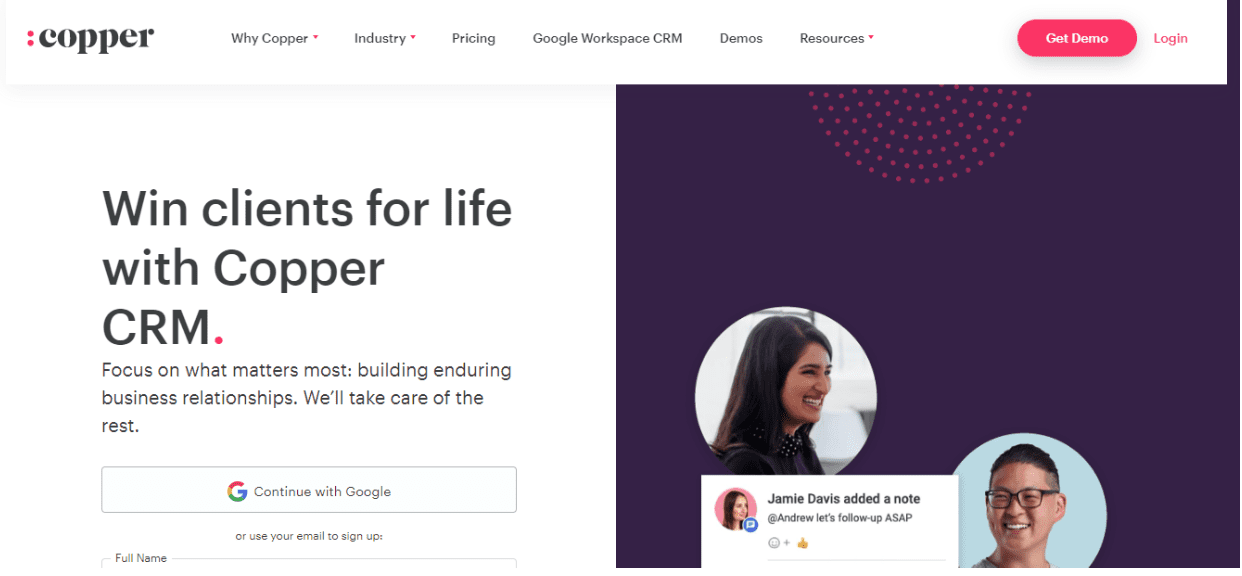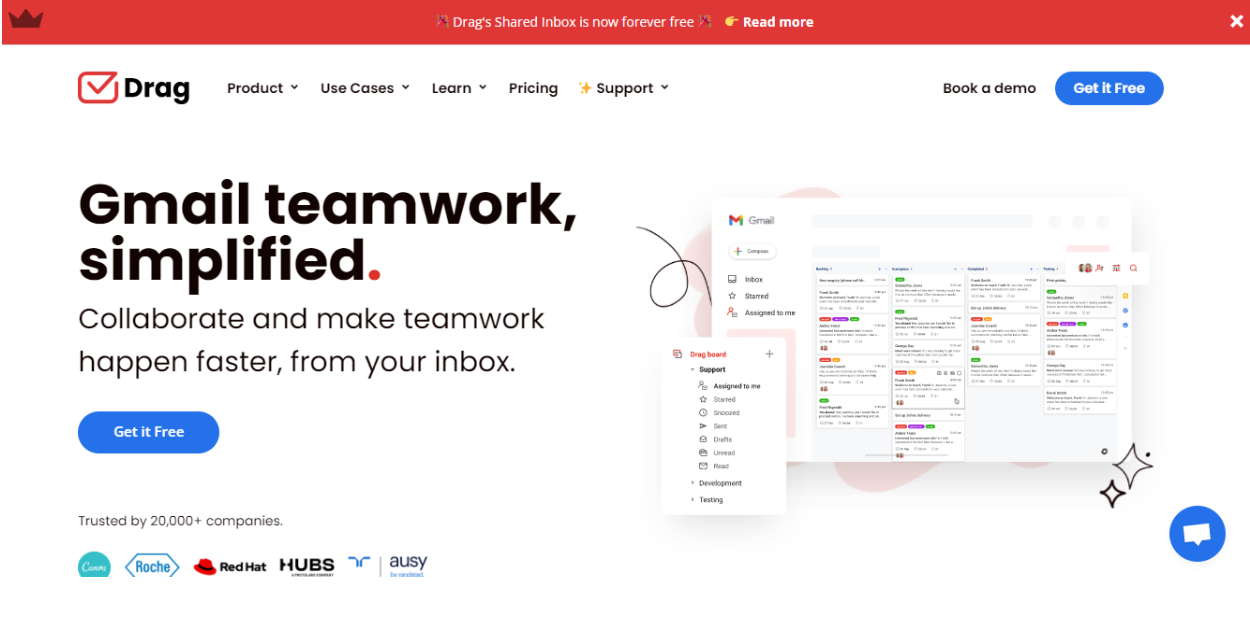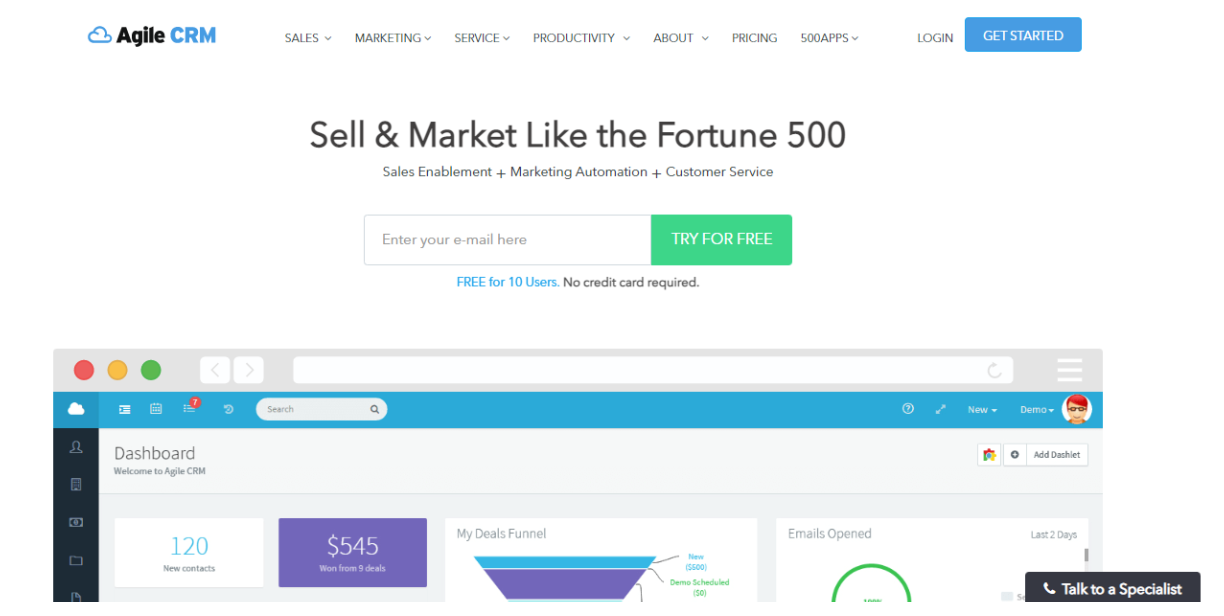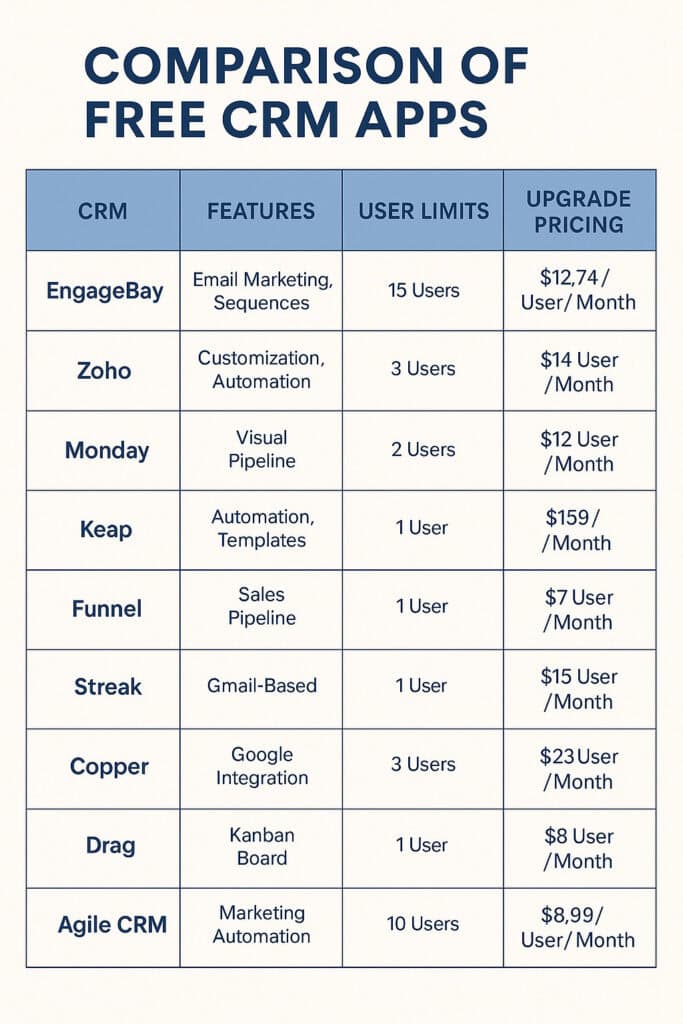Free CRM apps are revolutionizing how small teams manage contacts without spending a dime in recent times.
Whether you are a freelancer, a small business owner, or run a multinational corporation, using CRM software has become essential these days.
CRM apps enable companies to streamline their business processes and improve customer experience. They help organizations improve workflow efficiency, automate repetitive tasks, and manage relationships with all stakeholders.
Table of Contents
Top CRM for Small Businesses
Why Free CRM Apps Matter for Small Businesses
Free CRM apps are important for small businesses because they level the playing field.
When you’re juggling sales, customer service, and marketing on a tight budget, having a reliable, no-cost tool to organize your contacts, track deals, and follow up with leads can be a game-changer.
Free CRM apps help you organize contacts, track deals, and run reports—all at zero cost.
These apps let small teams punch above their weight—staying connected, responsive, and efficient without having to invest in expensive software or dedicated IT staff.
It’s not just about saving money; it’s about gaining the clarity and control you need to grow.
Benefits of free CRM apps:
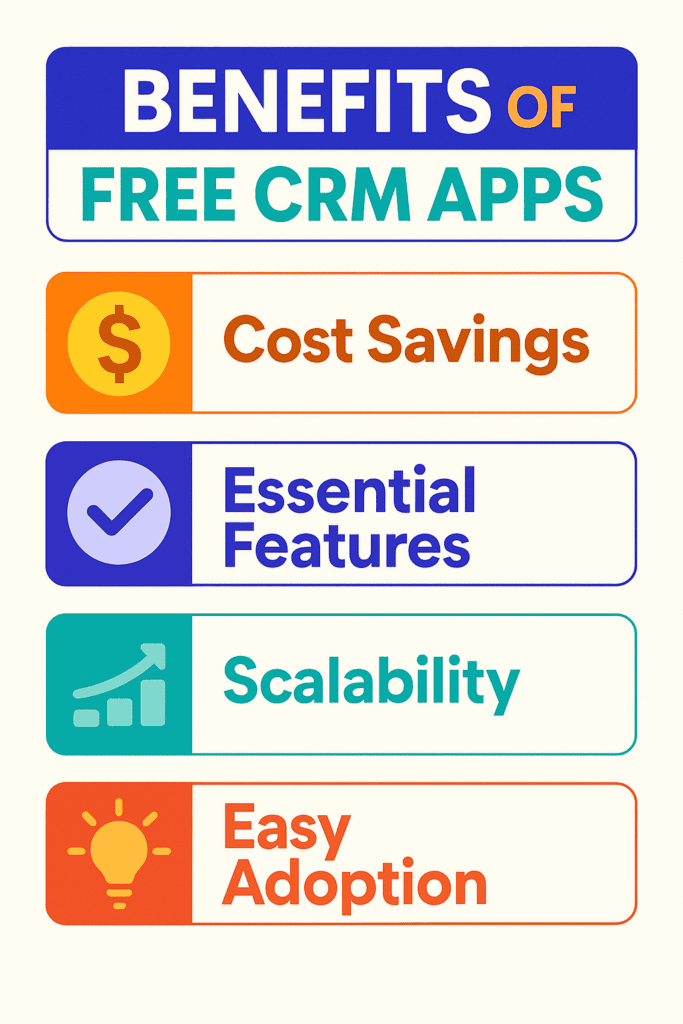
Key Features to Look For in Free CRM Apps
-
No-cost contact & deal limits: Ensure the CRM offers a generous number of contacts and deals without forcing you to upgrade early.
-
Built-in email automation: Look for automated email sequences to nurture leads and save time on follow-ups.
-
Customizable pipelines: A flexible pipeline helps you tailor deal stages to match your unique sales process.
-
Reporting & dashboards: Access visual reports and performance metrics to track progress and make data-driven decisions.
-
Mobile app availability: A mobile-friendly CRM lets you manage contacts and deals on the go, wherever business takes you.
Pros & Cons of Free CRM Apps
Pros of Free CRM Apps
-
Zero Cost to Start: Ideal for startups and small businesses with limited budgets.
-
Basic Features Included: Core tools like contact management, deal tracking, and email are often included.
-
Low Learning Curve: Free plans usually focus on simplicity, making them easier to adopt quickly.
-
Scalable Options Available: Many free CRMs offer seamless upgrades to paid plans as your needs grow.
-
Great for Testing: Lets you experiment with CRM workflows without financial commitment.
Cons of Free CRM Apps
-
Limited Features: Advanced capabilities like automation, integrations, and analytics may be locked.
-
User & Contact Caps: Most free plans restrict the number of users or contact records.
-
Basic Support Only: Priority or live support is usually reserved for paid users.
-
Fewer Integrations: May lack native integrations with third-party tools you rely on.
-
Data Portability Concerns: Some free CRMs make it harder to export data or switch platforms later.
In this listicle, we’ll go over the best free CRM apps.
The Best Free CRM Apps
Let’s dive in.
1. EngageBay: A Leading Free CRM App
To begin with, EngageBay is an all-in-one CRM tool that serves all your marketing, sales, and customer support needs.
It has four types of tools, including an All-in-One Suite, Marketing Bay, CRM & Sales, and Service Bay. You can go for a separate bay or choose the all-in-one to streamline your entire business process using a single platform.
Some of its vast functionalities include, but are not limited to, running ads on multiple channels, attracting the target audience with its built-in landing page and email templates, automating workflows, and giving a holistic view of your customers.
In fact, EngageBay is recommended by leading marketers such as Neil Patel, Jeff Bullas, and Shane Barker. Here’s what Neil Patel has to say:
Moreover, it integrates with over 150+ apps, including Zapier, Mailgun, Shopify, Stripe, QuickBooks, DocuSign, LinkedIn, JustCall, CallHippo, and so on.
EngagBay has bagged many awards from top user review platforms such as Capterra, G2, GetApp, SoftwareWorld, SourceForge, and SoftwareAdvice.
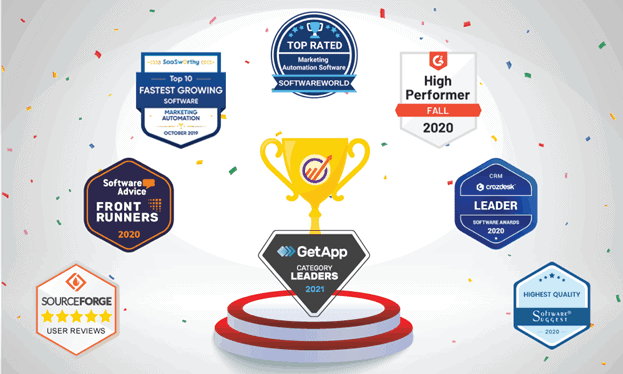
Features
- Segmentation: EngagBay lets you segregate your customers into different categories based on various filters, including age, demographics, likes, dislikes, and so on. Segmentation helps you target customers as you can then personalize the content according to your needs. You can also create time-specific segments to send emails at specific time periods.
- Deal Management: EngageBay’s deal management feature helps you capture the right deals, track them in real-time, and trigger automated workflows whenever a deal is won or lost. Using the drag-and-drop feature, you can assign deals to different milestones and monitor their progress.
- Proposals: It helps you create the proper sales proposal that enables effective targeting of clients. You can perform better competitor analysis, provide deep insights into buyer persona, and boast built-in templates that inform whether a customer has accepted your proposal.
- A/B Testing: An important feature of EngagBay’s CRM software is A/B testing. Using the feature, you can conduct multiple landing page trials to understand what works for your audience and what doesn’t. You can either choose from EngageBay’s in-built landing page templates or code your own website, group your clients to maximize conversions, and get insightful reports on which version of your landing page works best.
- Email Broadcast: To ensure that your emails maximize conversions, use EngageBay’s email broadcast feature. With email broadcasting, you can target clients better through contact list segmentation and track your campaign performance using metrics like email open rates, link clicks, and bounced emails. Moreover, it enables you to schedule time to broadcast emails and use A/B testing to understand how to execute email campaigns more effectively.
Free CRM Solution for Small Business – EngageBay CRM
Learn more about EngageBay’s Free CRM app here.
Pros
One of the major advantages of EngageBay’s CRM platform is its excellent UI. The user interface is easy to set up and navigate and helps streamline workflows, helping organizations serve clients better. Moreover, its low-cost pricing model makes it a suitable tool for both small and large businesses.
Cons
A drawback of EngageBay is its conversational mailbox. A lack of autofill feature makes it time-consuming for sales reps to reply to messages that have already been sent to a contact. They need to manually enter the email address of a prospect or client rather than it being filled automatically in the ‘To’ field.
2. Zoho: A Customizable Free CRM App
Zoho CRM is a powerful free personal contact management software that helps nurture customer relationships by improving engagement, increasing conversion, and reaching them through multiple channels.
Features
- Account Management: With the account management feature, you can manage contacts better and faster, as Zoho helps you place all deals associated with a particular organization under a single category.
- Check-in Feature: Zoho’s contact management system makes it easy to record your meetings with customers on the mobile app. You can then even notify your colleagues about a new lead generation.
- Multiple Touchpoints: It makes it easy for your customers to reach out to you through various channels, including social media, website, calls, live chat, etc. Zoho collects information from all integrated channels and creates a single database.
- Analytics: Zoho’s CRM tool helps you make smarter and informed decisions using its reporting analytics tool. The analytics feature lets you know the best time for calling your leads, the best day to send emails, and so much more.
- Conversational AI: Zia, Zoho’s conversational AI assistant, provides you with intelligent alerts whenever a deal closes, identifies high-quality leads, and gives you reminders on when you should contact your prospects.
- Canvas Design Studio: Want a customized CRM for your business? Zoho helps you do exactly that. Its Canvas Design Studio allows you to create a stylized CRM dashboard with a variety of built-in templates and a drag-and-drop feature that helps you see only the features and tools you want.
Pros
A key advantage of Zoho CRM is that it helps businesses improve client engagement. Its contact management and lead management features have enabled companies to have better interactions with potential and existing customers, thus enhancing their satisfaction level.
Cons
Although Zoho performs well in terms of CRM features, it can take time to understand and navigate. Moreover, some clients have also found its customer support to be slow at times.
3. Monday: A Visual Free CRM App
Monday.com is a simple contact management software that helps you identify, collect, and centralize all leads on a single platform.
Features
- Lead Management: From your contact database, it helps you identify high-quality leads and automatically score them based on various parameters.
- Deal Management: With deal management, you can customize your sales pipeline and track the progress of your deals as they progress through the sales funnel.
- Account Management: Account management gives you a 360-degree view of your customers and maintains a record of all your interactions with them.
- Post-sales Management: Improves customer relationships by helping you stay on top of client projects, tracking progress, and onboarding.
- Task Management: This allows you to automate workflows and automatically assign leads to reps.
Pros
What most users like about Monday is its ability to adapt to various business needs. With its customizable and versatile dashboard, you can prioritize your requirements and arrange features that best suit your style.
Cons
Despite its positives, Monday has certain drawbacks, including slow customer service. Furthermore, once you decide to upgrade your plan, it can get expensive compared to similar alternatives.
4. Keap: An Automation-Focused Free CRM App
Keap is a CRM platform that boasts a free customer database app and helps you send emails and texts, make payments, and create landing pages on a single platform.
Features
- Lead Tracking: Helps boost sales by identifying good quality leads and tracking them as they move through the different stages of the sales funnel.
- Data Enrichment: Ensures that all data is up to date by adding or removing customer information. Up-to-date reporting also helps you check the status of every lead by tracking their sales activity and behavior.
- Lead Scoring: Allows you to assess a prospect’s level of interest based on their levels of engagement. This helps you differentiate between active and inactive leads as well as understand which leads are more likely to convert.
- Appointment Scheduling: Helps you create or schedule appointments and meetings based on availability and follow-ups with clients.
- Sales Pipeline: The sales pipeline feature enables you to move leads faster by identifying and addressing any roadblocks, close more deals, and get real-time updates as they progress through different stages.
Pros
Keap is known to make the sales process efficient by helping businesses generate and mail invoices, send out newsletters, create landing pages, and manage contacts, all on a single platform. This has helped boost productivity and ultimately improve customer satisfaction.
Cons
While Keap’s email automation feature might be easy to use, you need to batch-download the contacts from the CRM, which is time-consuming and affects the productivity of sales teams.
5. Funnel: A Simple Free CRM App
Funnel is a CRM platform that helps you track leads, manage follow-ups, and stay updated on customer progress so that you don’t lose any deals. You get access to this contact management software free of cost.
Features
- Contact Forms: Helps code and create your own forms that you can embed on your website to capture visitor information and expand the subscriber base. Its free customer database app keeps all your contact information organized.
- Deal Management: With deal management, you can segregate prospects using various filters and the stage of the sales process they are in.
- Contact Management: Helps automatically build a profile of potential clients based on information provided on contact forms.
- Proposals: Funnel enables you to create rich sales proposals according to buyer persona to help you capture as many leads as possible.
- Task Management: Helps you organize, assign, and prioritize tasks on a single platform, set deadlines, track progress, and set goals.
Pros
One of the best features of Funnel has been its ease of use. It has a user-friendly interface, helps create web forms without much coding, and automates manual tasks.
Cons
The lack of integrations with well-known apps such as Facebook Messenger has made it difficult for Funnel users to contact prospects and collect information about the target audience.
6. Streak: A Gmail-Based Free CRM App
Streak is one of the best free CRM for Gmail that helps generate leads, support tickets, and manage investors – right from your Gmail. In fact, it was awarded the Google Technology Partner of the Year for a fully functional Gmail-integrated CRM. It seamlessly integrates with all of G Suite, including calendar, drive, and sheets.
Features
- View Tracking: Instantly know whenever someone opens and views your email. You receive a notification for the same, allowing you to follow up with those who may have missed it.
- Scheduling: You can schedule sending of emails directly within your Gmail. You can even edit or cancel your scheduled messages.
- Personalization: Streak lets you personalize mass emails with recipient names, company details, or any other data from your pipeline. You can preview your messages before sending them.
- Contact Management: Easily generate contact groups from your pipeline or import CSV file and send emails in bulk.
- Snippets: Insert canned responses and save time by avoiding rewriting emails. Create email templates, shareable across teams.
Pros
What makes Streak the preferred choice is its ability to deliver all the features it promises– tracking emails, automated email templates, or customizable CRM.
Cons
One drawback about Streak is that you don’t get accessibility to all its feature from the mobile version.
7. Copper: A Google-Friendly Free CRM App
Copper is a sales and marketing platform that boasts a free CRM with Gmail integration. It is completely integrated with Google Workspace and provides complete visibility into your sales pipeline, helping you close deals faster.
Features
- Google Workspace CRM: Copper’s integration with GSuite allows you to seamlessly navigate between Gmail, Drive, and Calendar. This helps you add contacts, schedule appointments, collaborate across teams, and access documents on a single workspace without switching between tabs.
- Mobile App: Copper’s mobile CRM app helps you access your customer database from anywhere, anytime. Using the mobile CRM application, you can nurture new leads, track the real-time status of deals, and record notes by speaking into your phone.
- Report Generation: Helps provide a 360-degree view into your sales and marketing campaigns, customize insights using Copper’s data, and schedule report creation and delivery. It also includes built-in reporting templates to allow you to create reports with just a few simple clicks.
- Project Management: Helps collaborate between teams, automates workflows, assigns tasks according to individual deals, and provides insights into revenue generated.
- Sales Automation: Automates task creation and allocation, updates contact profiles and deal statuses, sends real-time notifications whenever a deal requires attention, and provides built-in email templates to send personalized messages to clients.
Pros
Copper’s integration with Gmail makes it easy for organizations to add clients, share tasks with the sales team, and track the sales pipeline. With the free CRM for Gmail feature, companies can automatically add customer data, update or remove information, and collaborate seamlessly in real-time.
Cons
While integration with Google Workspace allows for seamless functioning, whenever someone creates a task on Copper, it is difficult to edit in case of a mistake. As a result, you have to delete the task entirely and create a new one, which is time-consuming and inefficient.
8. Drag: A Kanban-Style Free CRM App
Drag application is a CRM platform that helps you run sales pipelines within Gmail. Using Drag, you can collaborate across teams, schedule appointments and meetings, and close deals, all within Gmail.
Features
- Shared Inbox: Helps you create real accounts or Google groups to the Drag board and share them with your sales team. It also helps you customize and determine the information each team member should have access to.
- Personalized Boards: Drag boards allow you to share information between employees, assign tasks to team members, and provide real-time updates on the status of each task.
- Automate Teamwork: Helps categorize and segregate emails according to the priority and sender list, create rules on what tasks to complete first, and automate workflow organization.
- Merge Cards: This allows you to declutter the Drag board and streamline workflows by grouping related projects and conversations together.
- Automated Follow-ups: Enables you to increase response rates by automating follow-up replies, scheduling email sequences, and adding custom fields automatically to personalize communication.
Pros
Due to Drag’s integration with Gmail, companies have found it easy to send bulk emails and improve response rates by automating follow-ups.
Cons
Despite allowing teams to work better and more seamlessly, Drag has a steep learning curve. This makes it difficult for teams that have not used CRM software before to understand how Drag works.
9. Agile CRM: A Feature-Rich Free CRM App
Agile CRM is an all-in-one software that automates your sales, marketing, and customer support, on a single platform. It boasts a cloud-based SaaS service that helps you access your CRM dashboard and database even when you are not in the office.
Features
- Telephony: Allows companies to make calls from the CRM platform, record conversations, and automate voicemails.
- Email Client Software: Provides features like spam filtering, virus protection, and encrypted email access that maintain the privacy of organizations and customers while sharing information.
- Multichannel Campaigns: Enables businesses to execute their sales and marketing campaigns across multiple channels such as email, social media, telemarketing, and SMS, at the same time.
- Content Management: It provides insights into what content they should create, how to create it, and tools for scheduling content posting on different platforms. Moreover, users can even collaborate for content creation and distribution on the same platform.
- Push Notifications: Improves customer engagement by sending real-time alerts on when to contact users by informing them about the times when they are active or interact with your content.
Pros
Besides its ease of use, Agile CRM has a user-friendly and clean interface, making it convenient for users to navigate the platform and its tools.
Cons
At times, companies’ emails are not received by their clients, resulting in lost clients, which, in turn, affects revenue and brand reputation.
Here’s a Comparison of the top 9 free CRM apps listed above by features, user limits, and upgrade pricing:
Conclusion
CRM apps cater to various business needs, ranging from contact management to sales management and customer service.
They help businesses of all sizes drive revenue and profits. They improve customer satisfaction, manage relationships, and make your workflows more organized and efficient.
EngageBay Product Demo
If you’d like to try the most affordable all-in-one CRM software on the market today, just sign up for EngageBay! Our experts will guide you through the many tools within and show you how EngageBay can help you grow your business.
Most CRMs offer a free-forever tier with basic features like contact management, deal tracking, and email integration. To access advanced functions—such as more users, automation, analytics, or integrations—you typically need to upgrade. So, “free” means no cost to start, but features may be limited.
Look at what drives your business: team size, contact volume, key workflows (like email automation or ticketing) and match that with the CRM’s free tier. Check for user limits (e.g., Zoho allows 3 users, HubSpot is unlimited), contact caps, and the specific tools each platform provides
Yes! Many free CRMs let you start small and upgrade as you grow. For example, EngageBay supports up to 15 users for free, then offers affordable paid plans. Zoho allows 5,000 records, while HubSpot gives unlimited contacts . You can seamlessly expand without migrating platforms.
Generally, yes, most free CRMs integrate with common tools. EngageBay connects with Zapier and 150+ apps; Zoho integrates within its suite; HubSpot offers many native connectors. However, premium integrations like telecom APIs or advanced marketing tools may require paid plans.
Absolutely. Free CRMs like EngageBay, Zoho, HubSpot—follow industry security standards (SSL encryption, compliance, backups). But support levels often differ: free users typically receive self-service help, while paid customers get live or priority support.
